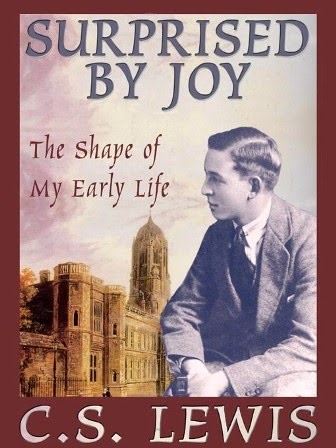April 15 comprised an interesting anniversary in one of Christianity’s most remarkable individuals: C.S. Lewis.
Lewis has long been one of my favorite authors. His name appears in multiple posts at this blog. Since I read it in my 30’s I have often referenced his autobiography Surprised By Joy. It records the remarkable journey of how the young atheist became perhaps the greatest Christian apologist of the 20th century.

Joseph Loconte, associate professor of history at the King’s College in New York City, has written a short article that filled in some of the pieces of Lewis’ life that I was not familiar with. Loconte writes:
On the morning of April 15, 1918, however, Lewis was a long way from the religion of the Bible. His battalion, the Somerset Light Infantry, had come under German bombardment at the French village of Riez du Vinage. After five months in the trenches, he had had enough of war: “the frights, the cold, the smell of high explosive, the horribly smashed men still moving like half-crushed beetles.” His poetry during this period rails against a silent and indifferent universe: “Come let us curse our Master ere we die / For all our hopes in endless ruin lie.”
And yet, the journey to Christ had begun:
Yet the war and its aftermath seem to have stirred Lewis’s spiritual longings. On a train ride to a London hospital to recover from his wounds, he was seized by a sense of the transcendent as he beheld the natural beauty of the English countryside. “I think I never enjoyed anything so much as that scenery — all the white in the hedges, and the fields so full of buttercups that in the distance they seemed to be of solid gold,” he wrote a friend. “You see the conviction is gaining ground on me that after all Spirit does exist. I fancy that there is Something right outside time and place. . . . You see how frankly I admit that my views have changed.”
If you are a fan of C.S. Lewis or simply want to begin to get to know this remarkable man, read Laconte’s short piece here.
- Darrow Miller







2 Comments
Rick
April 25, 2018 - 7:45 amChristianity as Lewis represents is decidedly not the Christianity of the Bible. In fact, so much of the vital core of the gospel must be set aside to facilitate a ‘mere Christianity’ that it becomes a counterfeit of the truth. You would not accept a counterfeit $50 bill simply because it shared some similarities with the real thing, would you? His books may contain themes that partially reflect the teaching of Scripture but I may find similar reflections in many other writers even pagans. It is what has to be left out that really matters! Many others besides Lewis have tried this. In more recent times the efforts of Evangelicals and Catholics Together got men like J. I. Packer and other men who ought to have know better, on board. The Manhattan Declaration was a similar effort that ensnared prominent evangelicals. Sadly, we live in an age where the great and glorious truths of the gospel have been so weakened and diluted as to be almost unrecognizable.
admin
April 26, 2018 - 6:11 amRick, thank you for sharing your comments. We will likely respectfully disagree.